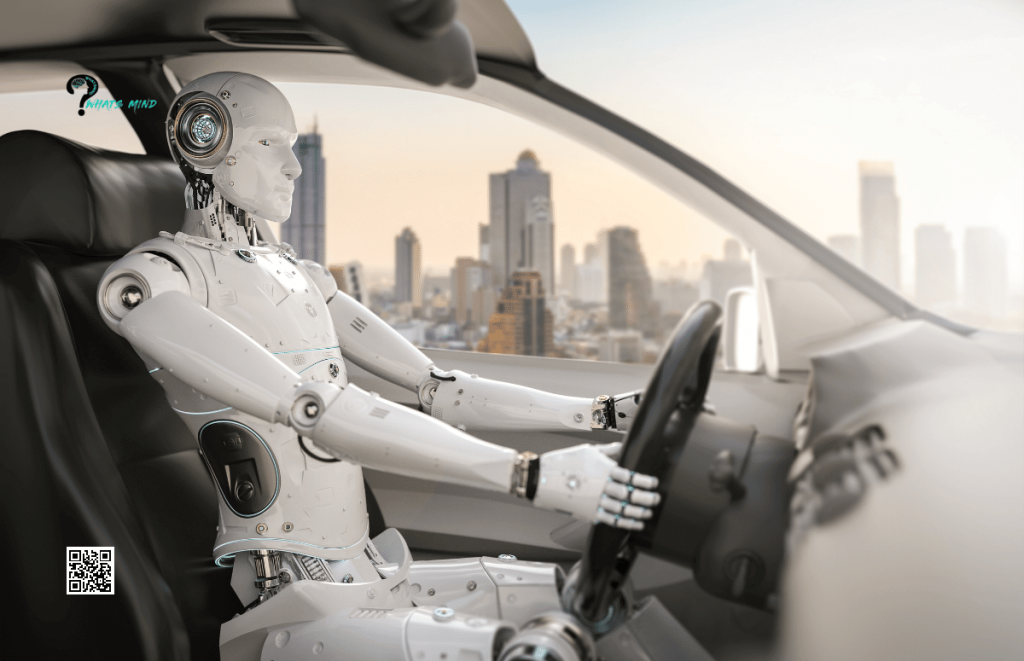Revving Up in 2024: Unveiling Trends and Future Projections in the Auto AI Market

The auto AI market sector is currently experiencing a noteworthy shift, primarily propelled by the swift progress of artificial intelligence (AI). AI is reshaping various facets of the automotive landscape, elevating user comfort, streamlining convenience, and paving the way for autonomous driving capabilities.
In the upcoming years, the automotive AI market is anticipated to undergo explosive growth, with an estimated market size reaching $161.4 billion by 2024. This transformation drives increased interest in data annotation outsourcing to leverage AI advancements in the industry efficiently.
Table of Contents
Auto AI Market Overview
The automotive AI market is witnessing robust growth driven by several key factors. Firstly, there’s a rising consumer demand for enhanced user experiences, with a preference for vehicles that offer personalized and intuitive features. AI is instrumental in developing advanced infotainment systems, voice-based assistants, and intelligent cockpits to meet these evolving demands.
Secondly, the advancement of autonomous driving technologies is a significant driver, with AI playing a pivotal role in shaping the future of transportation. AI algorithms are at the forefront, enabling vehicles to perceive their surroundings, make informed decisions, and maneuver autonomously.
Lastly, the automotive industry is responding to the growing government regulations for vehicle safety and efficiency worldwide. Stricter rules are prompting the integration of AI into advanced driver-assistance systems (ADAS) and powertrain systems to meet the evolving standards.
This transformative landscape has led to an increased interest in image labeling outsourcing to navigate the complexities of these AI-driven advancements efficiently.
Auto AI Market Segmentation
The automotive AI market can be segmented based on components, technologies, and applications:
Components:
- Hardware: Hardware components include processors, sensors, and memory devices specifically designed for automotive applications.
- Software: Automotive AI software includes machine learning algorithms, deep learning frameworks, and operating systems that enable the development of intelligent vehicle features.
- Services: Services include data collection, management, and analytics, as well as software updates and maintenance.
Technologies:
- Machine learning: Machine learning algorithms analyze large amounts of data from sensors and cameras to enable vehicles to perceive their surroundings.
- Deep learning: Deep learning algorithms are particularly well-suited for tasks such as image recognition and object detection, which are crucial for autonomous driving.
- Computer vision: Computer vision algorithms enable vehicles to interpret visual information, such as traffic signs, road markings, and pedestrians.
- Natural language processing (NLP): NLP enables vehicles to understand and respond to voice commands and natural language interactions.
Applications:
- Semi-autonomous: Semi-autonomous vehicles feature ADAS that assist drivers in specific driving tasks, such as lane departure warning, adaptive cruise control, and blind spot detection.
- Fully autonomous: Fully autonomous vehicles can drive without any human intervention.
- Infotainment: AI is used to develop advanced infotainment systems that provide personalized entertainment options and voice-based control.
- Safety: AI is integrated into ADAS to enhance vehicle safety by preventing accidents and reducing traffic congestion.
- Connectivity: AI enables vehicles to connect to the internet and other vehicles, facilitating data sharing and communication.
Regional Analysis of AI Market
The automotive AI market is expected to grow significantly across all major regions, including North America, Europe, Asia-Pacific, and Latin America.
North America is currently the largest market for automotive AI, driven by solid demand for autonomous vehicles and advanced infotainment systems. However, the Asia-Pacific region is expected to experience the fastest growth, fueled by rapid urbanization and increasing vehicle production.
Europe is also a key market for automotive AI, focusing on developing safe and reliable autonomous driving technologies. Latin America is a relatively nascent market for automotive AI. Still, it is expected to multiply in the coming years due to increasing disposable incomes and government support for technological advancements.
Market Size and Growth Projections
The automotive AI market is projected to reach $161.4 billion by 2024, growing at a compound annual growth rate (CAGR) of 26.6% from 2020 to 2024. The abovementioned factors, the increasing adoption of electric vehicles, and the growing popularity of intelligent mobility solutions drive this growth.
Key Market Players
The automotive AI market is characterized by a competitive landscape, with several significant players vying for market share. These players include established automotive companies, such as Mercedes electric cars, General Motors, Ford Motor Company, and Toyota Motor Corporation, and tech giants like NVIDIA Corporation, Alphabet, Inc., and Intel Corporation.

These companies invest heavily in research and development to develop innovative automotive AI solutions. They are also forming strategic partnerships to gain access to new technologies and expand their market reach.
Future Outlook
- Artificial general intelligence (AGI): AGI, a hypothetical type of AI that would be able to understand and reason at the same level as a human, could revolutionize the automotive industry. AGI-powered vehicles would be able to learn from their experiences, adapt to new situations, and make decisions on their own.
- Edge computing: Edge computing is the practice of processing data and performing analytics at the network’s edge rather than sending it to a central cloud server. This approach will be crucial for autonomous vehicles, enabling them to make real-time decisions without relying on a constant connection to the internet.
- The rise of electric vehicles (EVs): EVs are becoming increasingly popular, and AI plays a key role in their development. AI algorithms are being used to optimize battery performance, improve charging efficiency, and develop new autonomous driving features for EVs.
- The evolving regulatory landscape: Governments worldwide are working to develop regulations for autonomous vehicles and other AI-powered automotive technologies. These regulations must balance safety concerns with innovation, and they will play a significant role in shaping the future of the automotive AI market.
Conclusion
Automotive AI is poised to transform how we drive, making our vehicles safer, more efficient, and more connected. The market is expected to grow at an unprecedented pace in the coming years, and the technologies are evolving rapidly.
As AI advances, we hope to see even more innovative and groundbreaking applications in the automotive industry.
For more related content, visit Whatsmind.com




